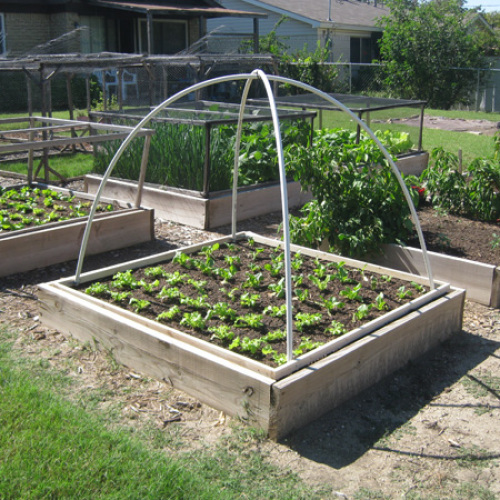
It is important to choose the right plants according to the climate and season in order for summer gardening. These tips will help you select the best summer plants. These are some ideas to help you get started. You should also consider the amount of sunlight that is available in your area. This will allow you to have a wonderful garden. You'll also be able enjoy outdoor living in the summer.
Avoid working in the heat and start early. It is best to work early in the morning or late at night. Remember to bring plenty of water for the plants and to protect your skin from the hot sun. Make sure to divide the work daily and work with the lightest of tools to avoid stress. Weeds thrive in summer and will steal water and nutrients from other plants. So, it's best to weed regularly. You should use insect repellent for all plants, not just the ones in your garden.

You can still enjoy your garden if you aren't afraid of heat and sun. Using a weed eater is a great way to get rid of grass in your garden and avoid the heat. If you're not into mowing, weeding and pruning, mowing your lawn in the afternoon is the best option. By doing this, you'll have a beautiful, green lawn that's full of flowers and vegetables.
You can plant a succulent, an orchid or a Geranium if you are looking for something different. You can also choose more tropical plants for hot summer days. Some of these plants require little or no maintenance. Australia's warm weather can lead to long days in the sun. This means it is crucial to keep the plants cool.
Choosing the right plant for the region is crucial. The success of your garden depends on which plants you choose. During the hot summer, you should avoid plants with long blooming seasons. Succulents can thrive in very hot climates. They need a lot of water in order to thrive. They also need lots of moisture. You need to find plants that will thrive in your area if you want to grow beautiful gardens in summer.

Living in areas with extreme summers, you can plan your gardening during summer. You should prepare your garden for monsoon season if you live in an area with arid conditions. After you have removed all weeds from the garden, the soil should be allowed to dry in the sun. Sunlight can kill soil-borne pathogenic insects. Next, clean and prepare the garden for the rainy season.
FAQ
How often do I need to water my indoor plants?
Indoor plants need watering every two days. The humidity inside your house can be maintained by watering. Humidity is crucial for healthy plants.
Are pots possible to grow fruit trees?
Yes! Fruit trees can be grown in pots if you're short on space. To prevent tree rot, make sure the pot has drainage holes. You should also ensure that the pot is deep sufficient to support the root ball. This will protect the tree from being stressed.
When is it best to plant herbs?
When the soil temperature is 55°F, herbs should be planted in spring. Plant them in full sun for best results. Plant basil indoors by placing seedlings into pots containing potting mix. Keep them out of direct sun until they sprout leaves. After plants begin to grow, you can move them into indirect sunlight. After three weeks, you can transplant them to individual pots and water them every day.
Do I have enough space to plant a vegetable or fruit garden in my backyard?
It's possible to wonder if you will have enough space for a vegetable or fruit garden if your current one is not available. The answer is yes. A vegetable garden doesn't take up much space at all. It takes just a little planning. For example, you can build raised beds just 6 inches high. Containers can be used in place of raised beds. You will still have plenty of produce, regardless of which method you choose.
How do I prepare the soil for a garden?
Preparing soil is simple for a vegetable garden. The first step is to remove any weeds that may be in the area where your vegetable garden will be planted. You can then add organic matter, such as composted cow manure, leaves and grass clippings. Water well, and wait for the plants to sprout.
Statistics
- According to a survey from the National Gardening Association, upward of 18 million novice gardeners have picked up a shovel since 2020. (wsj.com)
- 80% of residents spent a lifetime as large-scale farmers (or working on farms) using many chemicals believed to be cancerous today. (acountrygirlslife.com)
- As the price of fruit and vegetables is expected to rise by 8% after Brexit, the idea of growing your own is now better than ever. (countryliving.com)
- It will likely be ready if a seedling has between 3 and 4 true leaves. (gilmour.com)
External Links
How To
How do I keep weeds from my vegetable garden?
Growing vegetables that are healthy is not possible due to weeds. They compete for space, water, nutrients, sun, and sunlight. To prevent them from taking over your garden, use these tips:
-
When they flower, take all the plants with you
-
Get rid of any plant debris that may be around the base.
-
Use mulch
-
Regular water intake
-
Rotate crops
-
Do not allow the grass to grow.
-
Keep soil moist
-
Plant early
-
Harvest often
-
Mix compost
-
Use pesticides sparingly
-
Produce organic vegetables
-
Buy heirloom seeds
-
Start small
-
Learn more about companion planting
-
Be patient
-
Enjoy gardening!